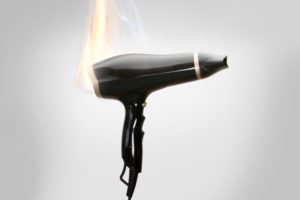
You have several ways to determine if your knee replacement was part of a recall. You could:
- Speak with your doctor or surgeon
- Review the recall database from the U.S. Food & Drug Administration (FDA)
- Review the manufacturer’s recall database
Typically, surgeons receive warning letters about medical device recalls for products they may have used. The doctor who treated you can tell you if the device used in your surgery was recalled. They can also explain your options for treatment or order follow-up appointments for monitoring. If you are unsure what to do about your faulty knee replacement, you can call an injury law firm for advice on what to do next.
What Knee Replacement Products Have Been Recalled?
Over the past decade, many medical device manufacturers have recalled knee replacement implants. These include:
- Exactech’s inserts for the OPTETRAK® and TRULIANT® knee systems (2021 and 2022)
- Zimmer Biomet’s inserts for implants (2017)
- Arthrex Inc.’s components in the iBalance Total Knee Arthroplasty System (2015)
- DePuy’s Sigma knee system (2009 and other subsequent recalls)
These recalls all involve unique product defects. However, most products were recalled because of design, manufacturing, or packaging flaws that could lead to premature implant failure for patients.
Exactech’s recall is the latest and could affect thousands of devices on the market since 2004. Exactech maintains a database where patients can look up their implant’s serial number and determine if it was recalled.
Signs of a Defective Knee Implant Device
There are several signs of a defective implant. Especially if you know your implant was recalled, you should watch out for these concerning symptoms:
- Swelling and stiffness
- Limited motion in the joint, limping, or instability
- Pain
- Infection
- Bone fractures
These are serious symptoms. Be sure to visit your doctor if you have any of these complications, whether your implant has been recalled or not.
Many doctors tell their patients that their implant surgery will be safe and that the implant’s components should last for many years. However, with a defective implant, you may see your knee replacement fail much sooner than it should.
Laborde Earles injury was great for me they took care of me very fast and professional. If for any reason I need legal help they will be who I use.
ClientMy Implant Could Be Defective, But There Was No Recall. What Now?
You may be unable to find good information about whether your knee implant device was part of a recall. However, more and more orthopedic implant manufacturers have reported defects with their devices in recent years. It can take years before recalls are issued. During that time, many people could make reports of concerning incidents and health complications, which could eventually lead to a recall.
The FDA maintains another database that may help you determine if others are having problems with the same type of knee implant you have. The FDA Adverse Event Reporting System (FAERS) allows you to search for information that a device maker may not yet have announced to the public.
You can also contact a personal injury law firm to get more information. An injury lawyer who focuses on medical product liability or knee implant lawsuits could have more insight, and their team could explain if you have legal options.
I thank God for Digger & David. I don’t know what we would have done if it hadn’t have been for them.
Rick Smith | ClientShould I Be Concerned if My Knee Implant Device Was Part of the Recall?
As mentioned, a defective device can lead to serious health complications. A recalled knee implant may break, loosen, or otherwise fail inside the body. These problems can be worrying, painful, and debilitating.
If your device was recalled or you are experiencing chronic pain after knee replacement, be sure to take the following steps.
Get Medical Attention
Ask your doctor to review your options. You may need regular monitoring to ensure your knee implant is still working properly.
If you start showing any of the aforementioned signs of implant failure, your doctor may advise you to get revision surgery. However, this can be a complex and costly procedure. Revision surgery can mean extended hospitalization and more expensive surgery bills than the initial procedure, per BioMed Research International. However, you may be able to hold the manufacturer liable for these additional expenses and burdens.
Follow Your Doctor’s Orders
Depending on your health condition, your doctor may recommend certain treatments if you have a recalled or failed knee replacement. Be sure to follow all of their orders, even if they recommend surgery.
If you file a lawsuit against the device manufacturer, having applicable medical records will be crucial. If you fail to follow your doctor’s instructions, the liable device maker may claim that you made your health complications worse by neglecting your care. Then, they can try to limit your payout.
Get a Free Case Review With Laborde Earles Injury Lawyers
Because we offer free case reviews, you have nothing to lose by contacting us—and everything to gain. An injury lawyer with experience handling medical mass torts can help you with your case.
We can give you important pointers about what to do and what not to do if your implant was recalled. We can also begin handling your case, file a lawsuit, and seek the compensation you need and deserve. Contact us today at Laborde Earles Injury Lawyers to get started.


